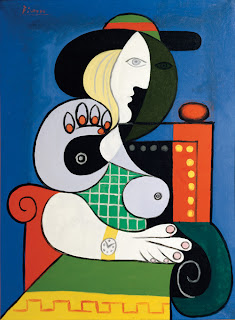 I thought I might say something about the process I went through to arrive at some of my beliefs regarding women’s liberation. I would like to do so because I feel that so often people who have opposing viewpoints (perhaps somewhat naturally) can vilify one another. And I think that if people could stop throwing stones at each other long enough to try to understand one another’s history and process of belief, we could gain so much knowledge, and, at the very least, we could recognize our common humanity.
I thought I might say something about the process I went through to arrive at some of my beliefs regarding women’s liberation. I would like to do so because I feel that so often people who have opposing viewpoints (perhaps somewhat naturally) can vilify one another. And I think that if people could stop throwing stones at each other long enough to try to understand one another’s history and process of belief, we could gain so much knowledge, and, at the very least, we could recognize our common humanity.
I have often noticed that on the topic of pregnancy, many people align themselves in one of two camps. In one camp, there are those who speak of pregnancy as “slavery” and implicitly or explicitly think of the fetus as a “parasite.” In another camp, there are those who speak of pregnancy as a “miracle”, and think of the whole process as “exhilarating and amazing.” And I have to say, that when I was pregnant with my first child, although intellectually I wished to align my beliefs with the latter group, my actual emotions were more in line with the former.
First off, my husband chose to take my last name when we married, and from the beginning we prided ourselves on having an egalitarian marriage. We knew the statistics that show that even when men and women both work 40 hours, the woman still does the majority of the household tasks. Though men tend to do things like taking care of the car and household maintenance, it does not add up to the daily tasks of cooking, cleaning, and child care that the woman puts in. We were going to have no part of such vestiges of an earlier, less enlightened, period.
But then something happened…I became pregnant. And guess what? There was no splitting it up fairly. I found out I was pregnant a couple weeks before finals week of my senior year of college. I would have liked to sit down with our calendars and say, “Ok…I have my senior synthesis presentation in front of the panel of faculty this day…so if you could take morning sickness then, I could take it over for your computer science final the following day…” But of course that couldn’t happen. All the changes taking place in my body, all on its own, felt rather foreign. And my experience of a lot of it was an experience of suffering. It was painful, inconvenient, tiring, and lonely. Lonely because we were supposed to experience all of life together, as partners, but he couldn’t REALLY experience this with me. He could only watch.
Of course we women know that the unfairness doesn’t end with pregnancy. Then there was breastfeeding. Again, I knew the statistics about how breast is best, so I was going to give that to my child. And although later I came to regard it as something very beautiful, in the beginning it was a great struggle. I felt like I had a leash on; so often it had to be me that met the needs of my child. No one else would do. I remember one night my husband and I planned that I was going to get a full night’s sleep and he was going to wake with our daughter that night. I pumped extra milk so I could blissfully sleep and he could take care of midnight and 3 a.m. feedings. First of all, my husband is a much sounder sleeper than I, so while I awoke to the sound of our daughter stirring, he awoke to the sound of her screaming for longer than three minutes. Then there was the problem of engorgement. My body was used to feeding a baby through the night and thus made milk to accommodate. By the second feeding, I was so engorged that I couldn’t sleep because I was in so much pain and all I wanted to do was to nurse my daughter so I could experience relief.
So I have to say that I completely understand the desire to make things easier, or different, or “more fair.” I understand the feeling of, “This is enough! Why do I have to put up with this?” But the thing is, for me to give in to that temptation would be to admit that I am flawed, that there is some kind of design mistake in me. That the masculine model of being really is the superior model and I should just do my best to emulate that.
And I just can’t do that.
Therefore, my other option was to think that there must be meaning in life as I experience it — that there is wisdom to be gained from living an authentically feminine life. So I sought to come to peace with myself. How can I explain my thinking? Let us say that an ordinary person, who liked to fancy himself an artist, walked into a museum, and, viewing a Picasso painting for the first time, thought to himself, “What nonsense! That is not at all how women look!” So he proceeded to take out some paint and brushes and paint over this original Picasso. I feel that is how society acts in regards to women. We are marvelous creations, masterpieces, but rather than trying to understand what is, society, in ignorance, says, “No, that’s not how women should be. That must be a mistake. Let us make them better!” And so, the profound wisdom that can be gained from being receptive to what is, is lost to defacement, and society celebrates progress when it should shudder.
Elizabeth Blackwell, the first woman doctor, after being rejected from several medical schools on account of her sex, was advised to enter school under the guise of a man. She stated, “I must be accepted as I am, for what I am, otherwise what good will it do for those who are to follow?” And I feel that women today are often given permission to engage in work and in society, but the prerequisite is that we do so on men’s terms. But I say that we must be accepted as we are for who we are!
April originally posted this on her personal blog MyFeminineMind.




Leave A Comment